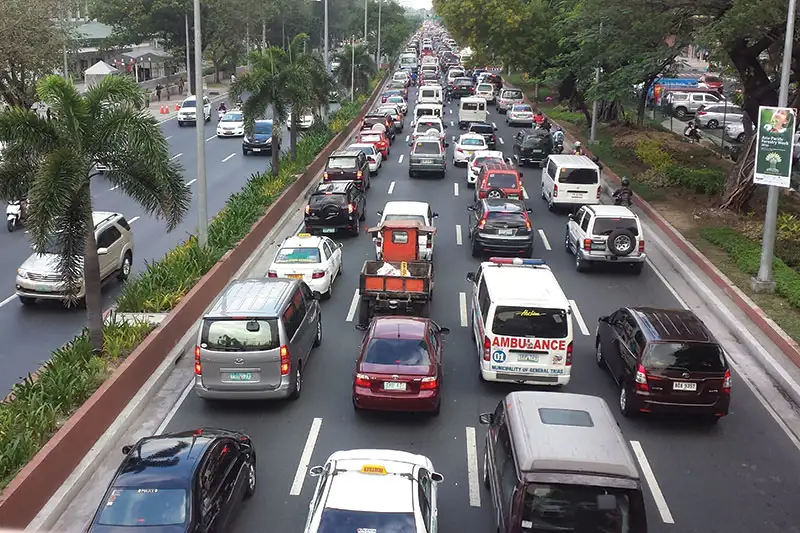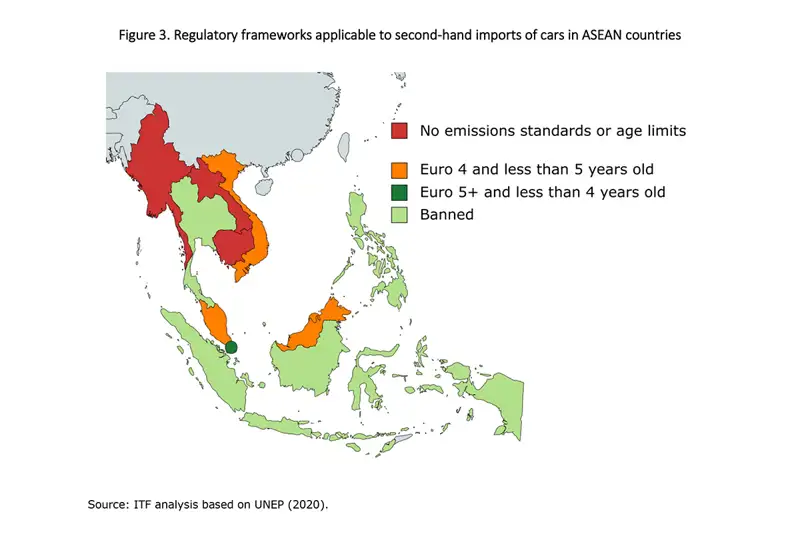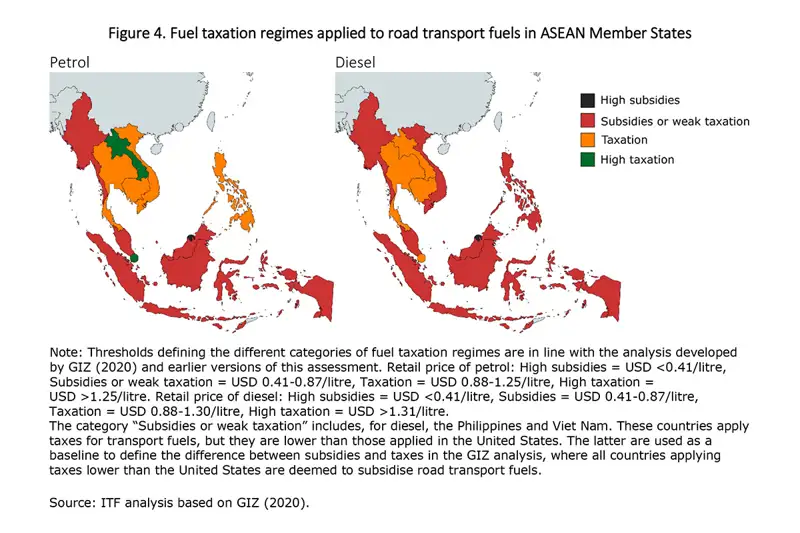New analysis identifies priorities to help ASEAN countries improve vehicle efficiency
30 March 2022

GFEI’s latest working paper, ‘Implementing the ASEAN fuel economy roadmap’ outlines potential ways that the ten ASEAN Member States can introduce measures to reduce emissions and improve the efficiency of vehicles in order to cut energy use per km by 26% between 2018 and 2025. The report, written by GFEI partner the International Transport Forum (ITF) was part of the ITF-ASEAN Transport Research initiative, jointly developed by the ITF and the ASEAN Land Transport Working Group (LTWG) led by Singapore and funded by FIA Foundation.


The report explores how ASEAN member states can mitigate the negative impacts of the rapidly growing number of cars on the region’s roads. In a stocktake on the current situation in the region, the work highlights significant differences between countries. Whilst some have strict environmental policies in place, such as banning imports of second-hand vehicles (Figure A), or taxes on fossil fuels (Figure B) others have little or nothing in place. Indeed, currently, six out of the ten ASEAN Member States are yet to take a decision on technical regulations which are a fundamental pre-requisite for effective policy action on fuel economy (Table A).
TABLE A:

There are also several differences between groups of countries in their promotion of electric vehicles (Table B). Automobile-producing countries in the region (Thailand, Indonesia, and Malaysia) have adopted policies promoting LZEV production. Brunei Darussalam and Singapore have enacted LZEV policies with a greater focus on public transport. However, countries with a lower industrial base, including Cambodia, Lao PDR and Myanmar, have not yet developed any policy support for a transition to low- and zero-emission vehicles.
TABLE B:

The report explores opportunities for aligning policies across ASEAN, considers the role of trade agreements and recommends measures for a transition towards electrification. It concludes that meeting the targets of the roadmap requires greater policy ambition, and recommends that countries:
- Strengthen alignment on fuel economy measurement as a key prerequisite for further action
- Ensure availability of testing capacity for fuel economy
- Build data processing and storage capacity for benchmarking, monitoring and decision making
- Adopt and align policy tools to strengthen ASEAN fuel economy ambition
- Align fuel taxation policies across ASEAN
- Include low- and zero-emission vehicles in the ASEAN fuel economy roadmap
- Target all motorised vehicles with policies that reduce fuel consumption and CO2 emissions
Sheila Watson, Executive Secretary of the Global Fuel Economy Initiative (GFEI) said, “This is an important example of the powerful in-depth support and analysis that GFEI partners are able to provide to countries looking to improve the efficiency of their vehicle fleet. There currently are a range of approaches taken in the region, but we hope that this collaboration will spur them to together faster towards efficient and electric mobility."
Read Working Paper 24: Implementing the ASEAN fuel economy roadmap